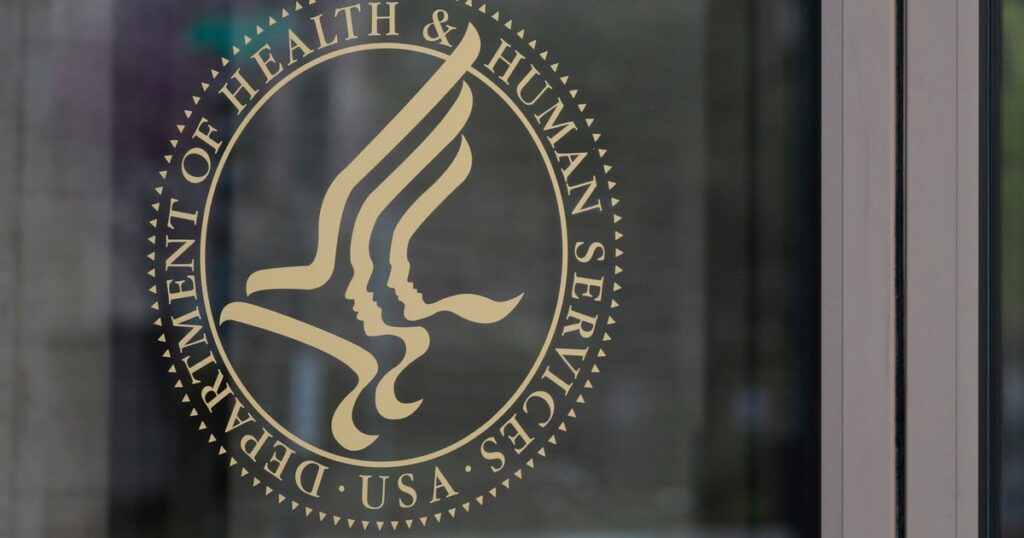The Department of Health and Human Services has transferred $500 million from research into next-generation COVID-19 vaccines, redirecting the money to a single vaccine project linked to the Trump administration’s former acting head of the National Institutes of Health.
Multiple federal health officials said they were surprised by the announcement, which bypassed the usual procedures overseen by career scientists at the NIH and the Biomedical Advanced Research and Development Authority, known as BARDA. Those reviews are intended to ensure that federal research money goes to the projects with the greatest scientific merit.
The HHS says the initiative, dubbed “Generation Gold Standard,” aims to start clinical trials next year for universal influenza vaccines that could protect against any strain of the virus. It hopes to get a vaccine approved by the Food and Drug Administration by 2029.
All of the money is being transferred to an influenza vaccine project called beta-propiolactone or BPL, according to emails seen by CBS News. Two officials said the decision to pour $500 million into a single vaccine platform is unusual, given the limited data on it.
The transfer makes it effectively one of the largest awards to date from a BARDA effort to speed funding to new experimental vaccines and treatments, topping a previous award of $452 million to a company developing an experimental oral COVID-19 vaccine.
An HHS spokesperson told CBS News that “decision-making for project Generation Gold Standard was a collaborative process, between leaders of HHS, in an effort to direct funding for a BPL vaccine for all influenza threats, not just one.”
The Wall Street Journal previously reported news of the project.
The vaccine underwent testing for safety results earlier this year in a small study led by NIH researchers Dr. Matthew Memoli and Dr. Jeffery Taubenberger. The research was what scientists call a Phase 1 study, the first step to researching a potential vaccine in humans.
Memoli had served as the acting head of the NIH during a controversial transition in recent months, overseeing Trump administration directives like steep cuts to research funding and the medical research agency’s staff and leadership.
Taubenberger, who holds a patent for the BPL vaccine platform, was picked to be the acting head of the National Institute of Allergy and Infectious Diseases, or NIAID, after the institute’s previous director was ousted.
BARDA and NIH officials were ordered to redirect the money to Memoli’s research by Noah Miller, a special assistant hired by Health and Human Services Secretary Robert F. Kennedy Jr., according to emails seen by CBS News. Two officials said it was unusual for a political appointee to handpick a project or researcher to be funded without vetting from career scientists or outside review.
The money is coming from the “Project NextGen” initiative, a $5 billion effort launched under the Biden administration that had previously funded multiple research projects into studying potential COVID-19 vaccines and treatments.
The NIH had previously awarded $62.4 million in grant money to researchers at seven universities working on “pan-coronavirus” vaccines.
From BARDA, the department had also backed four vaccine makers going into larger Phase 2B clinical trials to study experimental COVID-19 vaccines, in awards totaling $551 million.
Those followed requests by the NIH and BARDA for researchers and vaccine companies to submit proposals for backing from the federal government.
Another HHS spokesperson, Vianca Rodriguez Feliciano, said in an email that the department’s new initiative “realigns BARDA with its core mission: preparing for all flu viral pathogens, not just COVID-19.”
“It delivers a cost-effective, accountable alternative to the Biden administration’s wasteful Project NextGen, which spent $1.63 billion on COVID-19 vaccines and $1.19 billion on therapeutics, neglecting broader pandemic preparedness,” Feliciano said.
In its release, the department described the decision as a “decisive shift toward transparency, effectiveness, and comprehensive preparedness,” by focusing on “in-house development” of vaccines instead of projects from outside researchers.
It is also planning to develop other vaccines for COVID-19 using BPL, which it calls “traditional vaccine technology brought into the 21st century.”
“Our commitment is clear: every innovation in vaccine development must be grounded in gold standard science and transparency, and subjected to the highest standards of safety and efficacy testing,” Kennedy said.

